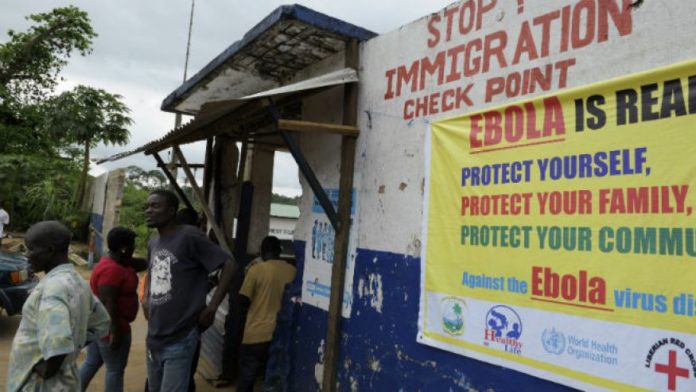
Liberia’s president on Friday ordered officials to lift an overnight curfew put in place six months ago to fight the Ebola epidemic and to reopen the country’s land border crossings.
The new orders from President Ellen Johnson Sirleaf, which take effect Sunday, offer another sign that normal life is resuming in the West African nation as officials work toward eradicating the disease from the region.
Once the center of the worst Ebola outbreak in history, Liberia has recorded more than 9,000 cases of the virus and 3,947 deaths. However, the most recent update from the World Health Organization reported only two cases in the previous week, and schools began reopening earlier this week.
Friday’s statement said Sirleaf made her decision about the curfew and borders “on the advice of the National Security Council of Liberia.”
The curfew was imposed last August when the epidemic was raging. It originally lasted from 9 p.m. to 6 a.m., though officials later pushed the start time back to midnight.
The statement said Sirleaf had ordered that “the country’s main borders” be opened. That includes the borders with Sierra Leone and Guinea, but it wasn’t immediately clear if the border with Ivory Coast would be reopened, because Ivory Coast closed its borders in August.
Even with the easing of travel restrictions, health and safety measures will remain strictly enforced, the statement said.
“[T]he Ministry of Health has been requested to ensure the adoption and implementation of health protocols that will prevent the importation of the virus through any of the crossing points, while members of the Joint Security assigned at the borders are mandated to work closely with the health authorities to ensure adherence to the health protocols and safety at all times,” the statement said.
Meanwhile, health officials are sounding the alarm over a recent uptick in Ebola cases in Sierra Leone and Guinea, where the rate of new infections had previously dropping. Sierra Leone recorded 74 new cases in the latest WHO update and transmission remains widespread there, while Guinea recorded 52 cases.
Dr. Bruce Aylward, who leads the WHO’s official Ebola response, told the BBC that progress has stalled in the region, where the virus is spreading at a rate of around 120 to 150 new cases a week.
“It’s what keeps me up at night right now,” Dr. Aylward said. “This is not what you want to see with Ebola.”
Since the outbreak was first confirmed last March, a total of 23,371 people have been infected with Ebola and 9,442 have died from it. Scientists have traced the source of the outbreak to a child in Guinea who died of the virus after coming into contact with an infected bat.
